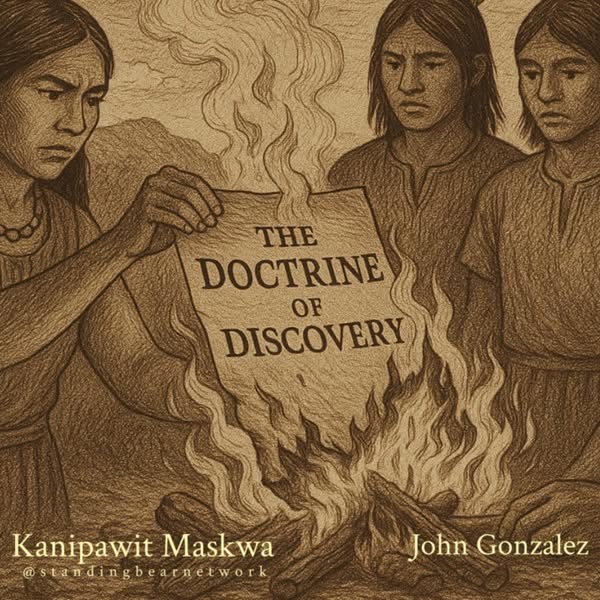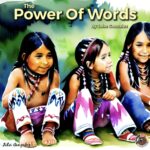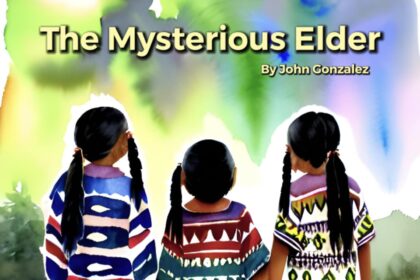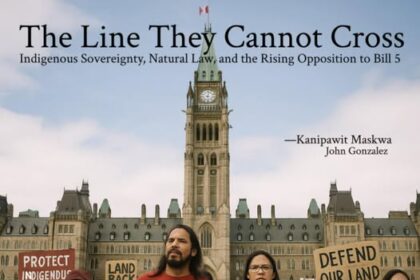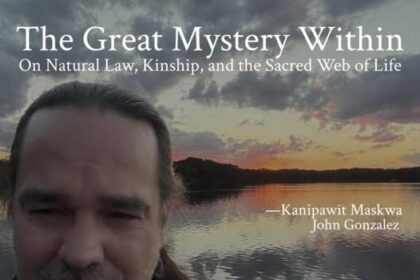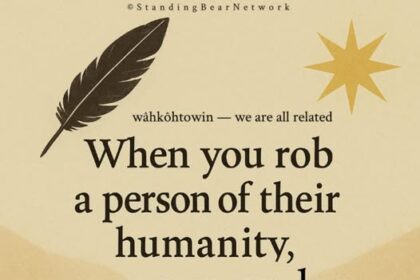I have walked the halls of courtrooms and the paths of rivers. I have listened to the thunder in the drums and the silence in the decisions handed down by supreme courts that claim justice, but deny our existence. What I’ve come to understand is this: long before they wrote their laws, we had our own. Long before they mapped the land, we belonged to it.
But across the world—on Turtle Island, in the lands they call Australia and New Zealand—one lie echoes like a shadow behind every flag, every courthouse, every stolen acre.
The Doctrine of Discovery.
A weapon carved not from stone or steel, but from paper, parchment, and the arrogance of empires. It said that because they were Christian, because they arrived with ships and swords, the land was theirs. That our people, our ancestors, our nations—were less than. That we had no legal title. No sovereignty. No voice.
And this lie, born from papal bulls in the 1400s, was not buried in history. It was woven into the very fabric of the settler states that claimed us.
In the United States, it was Chief Justice John Marshall who enshrined this doctrine in Johnson v. M’Intosh (1823). He said discovery gave the government the exclusive right to extinguish Indigenous land rights. With that one ruling, a system was born—one that continues to strip land, silence nations, and pretend it’s law.
In Canada, we were told our title was “personal and usufructuary.” In other words, we could use the land, but never truly own it. Even the progressive rulings—Delgamuukw, Tsilhqot’in—still start from the assumption that the Crown holds ultimate sovereignty. That assumption is the Doctrine of Discovery dressed in a new suit.
In Australia, they called our lands terra nullius. Nobody’s land. And even though Mabo v. Queensland overturned that fiction, the deeper lie still stands: that sovereignty belongs to the settler state, not the First Peoples who never ceded it.
And in Aotearoa, the Treaty of Waitangi was twisted by courts to mean something it never was—used to justify Crown dominance, not shared authority. Again, the echo of discovery is there, thinly veiled.
They claimed our lands because we weren’t Christian. Because we didn’t fence the Earth. Because we didn’t live by Roman law. But we had law. We had governance. We had sacred connection to every mountain, every muskeg, every riverbend.
We still do.
In 2023, even the Vatican finally renounced the Doctrine of Discovery. But what does that mean when the governments built upon it still stand on stolen ground? What does it mean when their supreme courts still cite its logic—sometimes outright, sometimes by omission?
The truth is this: they used law to erase us. Now we must use truth to bring us back.
It’s not just about land. It’s about dignity. It’s about the right to govern ourselves, to raise our children in our languages, to heal our wounds with our medicines, and to remember who we are without permission.
We were never discovered.
We were never lost.
We are the original orders of this land.
It is time not only to repudiate the Doctrine of Discovery—but to return to a world where Indigenous law stands not beneath colonial law, but beside it. Where our treaties are not symbolic, but binding. Where our nations are not wards of the state, but sovereign peoples.
Because the truth is, we are still here.
And we remember.
Kanipawit Maskwa
John Gonzalez
Standing Bear Network


